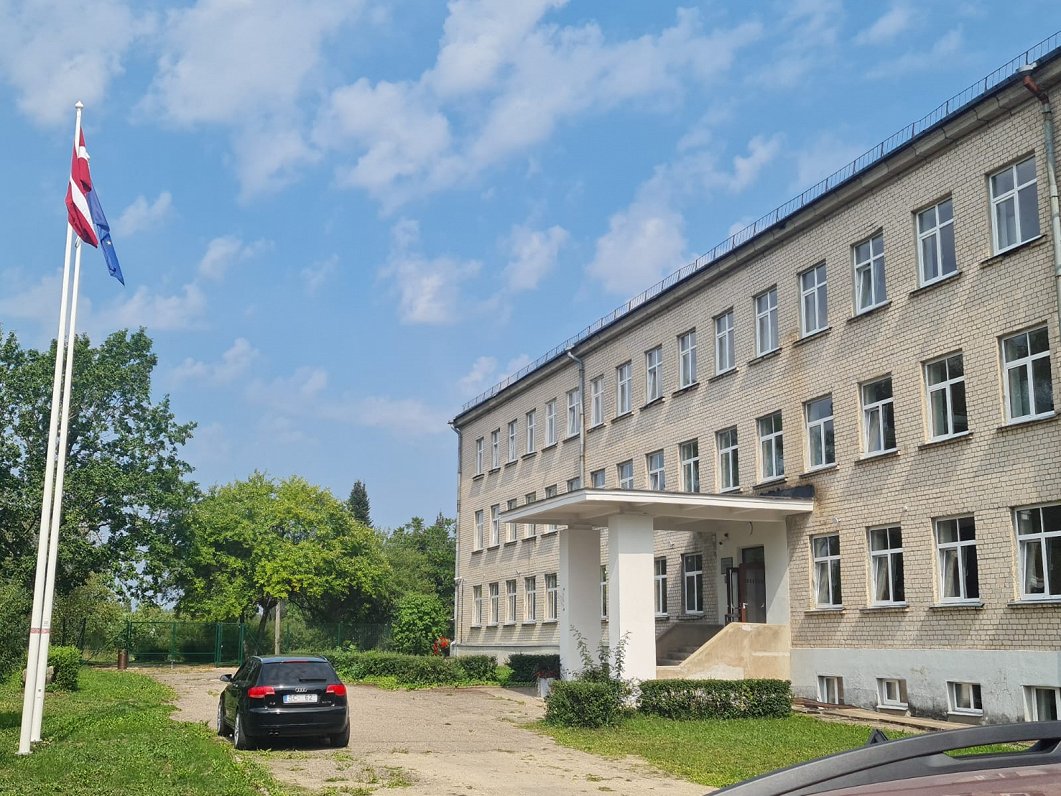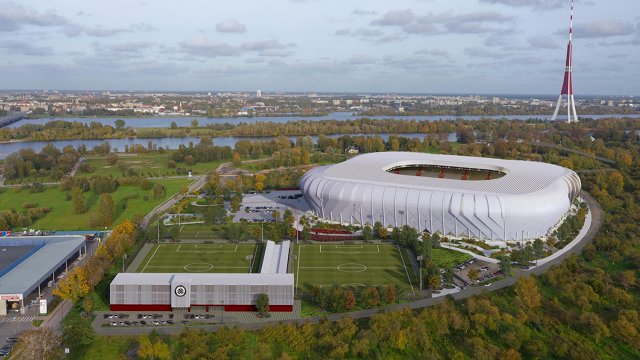Persons who requested asylum while crossing the border of Latvia or already in Latvia are brought here while waiting for a decision to be made. Previously, all asylum seekers stayed in the "Mucenieki" reception center near Rīga but as the number of migrants increased as a result of the Lukashenko regime's state-backed people smuggling operation, a similar center was opened in Liepna in August of last year.
In 2013, just 185 asylum seekers arrived in Latvia, now, 10 years later, the number has increased nearly tenfold to 1,624. The number of migrants increased especially rapidly after the hybrid attack launched by Belarus in 2021, when citizens of African and Asian countries began to fly to Moscow or Minsk, and then were brought to the Belarus-Latvia border to try to enter the European Union illegally. Most of them are stopped from crossing by the border guard, but some are allowed into Latvia for humanitarian reasons.
With the number of available places running out, the Citizenship and Migration Affairs Board (PMLP) started looking for additional premises. In the competition announced three years ago, Alūksne district was the only municipality that responded, although there are many vacant school buildings or boarding schools in Latvia.
It is 230 kilometers from the Liepna asylum seeker center to Riga, but only 13 kilometers to the Russian border. The district center, Alūksne, is half an hour's drive away. Until recently, most of that distance was via gravel road. Although promised 30 years ago, asphalt was applied only in 2021. The locals view is that the road has finally been fixed to bring asylum seekers to the center more easily. A pedestrian walkway in Liepna, which had been promised for many years, has also received money only after the arrival of the asylum seekers.
The improved roads are said to be one of the indirect benefits of placing the migrant center on the Northeastern border of Latvia.
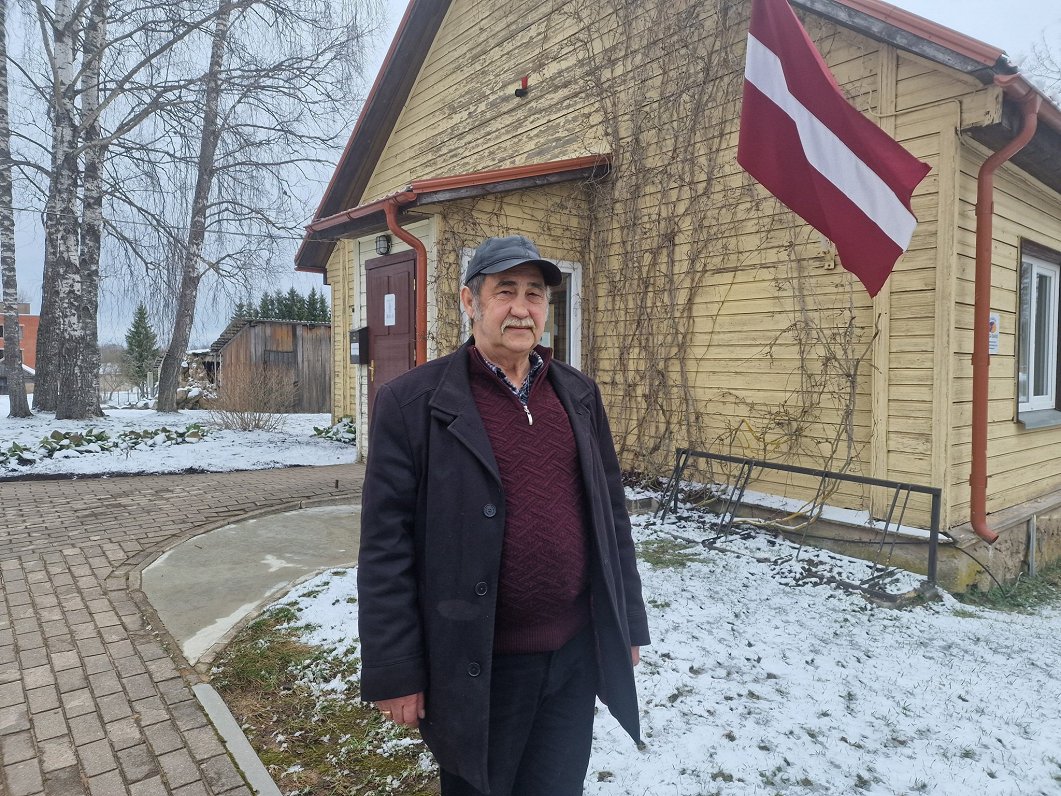
Despite the infrastructure upgrades, Eduards Voilaks, manager of buildings and managed territory of Liepna district, said:
"No, there is no financial benefit. It is psychological. Drive into Liepna, you see people walking, there are cars. I have driven through different villages. I saw a dog in one, two crows in one. Villages like that are dying out. This is basically to preserve the village. Not all can be measured in money. The [local] store has more turnover."
Ingus Berkulis, executive director of the municipality of Alūksne, listed other benefits: "The plus in our case is these premises, which have been improved, jobs, residents of Alūksne work there, so there is income tax that goes into the municipality's budget."
Around 25 people from Liepna parish and Alūksne county work in the center every day. It is important that the dormitory building of the school, which was closed six years ago, has been renovated and inhabited again. By investing almost 1.3 million euros of funds from the European Union, the three-story building was renovated and adapted: the roof was replaced, a fence was installed, an autonomous heating boiler was installed, and a generator was purchased. There are renovated sanitary facilities and a dining hall, as well as residential rooms. There is also a laundry room and a gym in the basement.
However, Latvian Radio was not allowed inside the center to look at it in person, with the safety of asylum seekers cited as the reason. "The 1st floor has a foyer, a lounge, a classroom where you can study, a dining hall area, a prayer room, security and administration," said Loreta Jargane, manager of the Liepna Center.
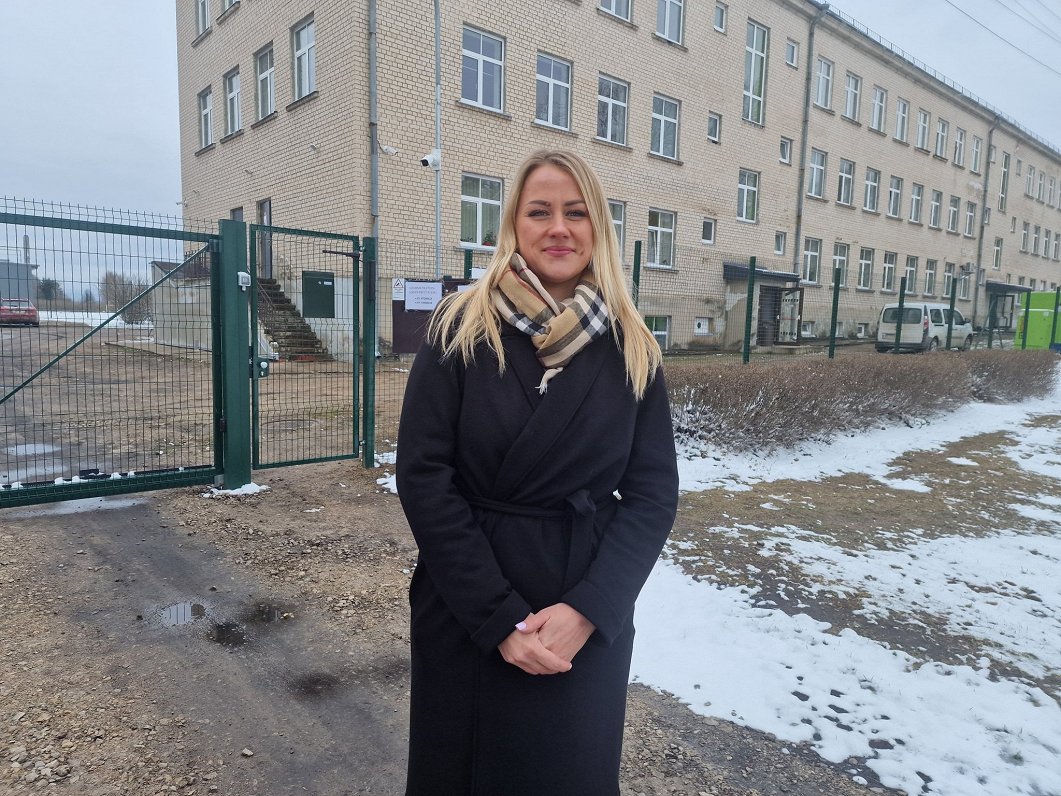
The second and third floors are reserved for asylum seekers' rooms; women at one end, men at the other. The conditions are modest – bunk beds and a small locker for each person's belongings. Each dormitory room houses from eight to 18 people.
In total, the capacity of the building is said to be 250 persons. At the moment, approximately 100 asylum seekers are staying in the center. Most are from Syria, Afghanistan and India.
The necessary clothing, especially winter clothes, is mostly provided by charity organizations, and once a month asylum seekers receive a food package with oil, sugar, flour, tea, beans and pasta, as well as a package of hygiene products with shampoo, toothpaste, toothbrush and washing powder. They have to cook for themselves, so in addition to the monthly food package, a daily allowance of three euros is also given. It is brought to the residents once a week and, as Irene, the owner of the local store, observed, they also have a big shopping day.
"Vegetables, flour. The interesting thing is that they bake their own bread. They buy flour and dry yeast. And vegetables, rice. Due to the fact that they have very limited resources, we cannot say that they shop a lot and that we we really feel the difference, but [during] the winter months, we were able to get by thanks to them. We can get by, but we can't say that they make a very big contribution, because they really only buy the most necessary things," said the store the owner.
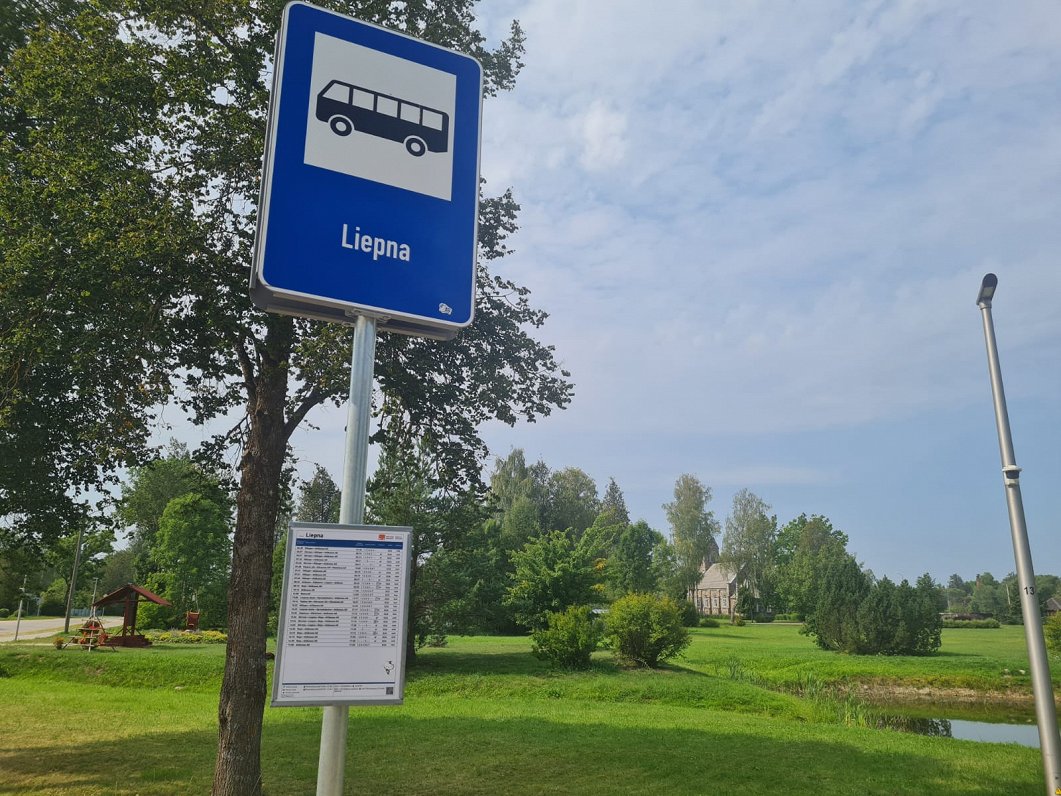
When asked about how to communicate with foreigners, Irene said: "We are communicative girls. We know how. Some know Russian, some don't know anything. Just like us - someone knows English, someone knows Russian. Well, somehow we get along."
The daily allowance of three euros is one of the smallest in the European Union. It was last revised in 2016. PMLP plans to raise this issue and increase the daily allowance this year.
The black bus of the asylum seeker center passes by, bringing several people. They visited the doctor in Alūksne. Asylum seekers receive basic medical services free of charge. Also, they play football twice a week in the local sports hall, as well as learn the Latvian language twice a week.
Latvian Radio met two young men from the African country of Eritrea near the center. They said what they had learned in Latvian. When asked what their plans are and whether they intend to stay in Latvia, one of the men, Temmijs, said: "Yes, if they approve my application, I will stay. It is cold here, but good."
Temmijs has been staying in Latvia for five months. After a while, a man and two women from Ethiopia pass by and join the conversation. Asked how they like it here and if anything needs to be improved, Abewe said: "Everything is good, but the paperwork is taking a long time."
Abewe's application has been under consideration for six months. They don't want to be photographed, saying that it can cause problems. They also talk evasively about how they got here, only revealing that they came through Russia and Belarus.
22-year-old Idris from Afghanistan wants to get refugee status and resume his studies in building engineering, which he had to abandon in Afghanistan because of the Taliban.
"I got out of Afghanistan because the Taliban regime doesn't support education, doesn't like people studying in schools and universities. Everything is closed. When the Taliban came, I lost everything, I lost my country."
There is an apartment building right next to the Liepna Asylum Seekers Center. Latvijas Radio met Vili there.
Shortly after the opening of the center, at the beginning of the new school year, the children's parents were worried about what might happen as a result of the asylum center being close by, said Ilona Kazimirjonoka, the director of Liepna elementary school, but no problems have been reported so far.
"In the beginning, the people of Liepna had concerns and resistance when the decision was made to transfer the building for such a purpose, but now, when we meet with the residents of Liepna, we understand that they have settled in and there are no problems," said Ingus Berkulis, the executive director of the municipality of Alūksne, and the people of Liepna also confirmed this to Latvian Radio, noting that many residents of the asylum cener seem polite and even shy – but that they impressed the community by singing at a local concert in Latvian and won praise for their good voices.
Many asylum seekers willingly get involved in the cultural life of the local community, said Lienīte Trivole, cultural work specialist of the Alūksne County Culture Center.
"I went to a national holiday. I went to a concert, I participated in a pop party," Trivole said: "Yes, no problem. Come and sing."
The parish priest of Liepna, Guntars Skutels, has also noticed the newcomers at church services where they have made efforts to sing in Latvian, too.
The people of Liepna would like to take asylum seekers as helpers on local farms, and the asylum seekers themselves told Latvian Radio that they want to work, though this has to comply with employment and asylum laws at the same time.
Significant improvements have recently been made to promote the involvement of foreigners, refugees and asylum seekers in the labor market. At the beginning of the year, the government supported the proposal of the Ministry of Economy to pay immigrants the average wage in the sector, instead of the average wage in the country, as it was until now, because otherwise entrepreneurs were not interested in signing contracts with foreigners for less qualified work, if according to the law they have to pay a higher wage than locals. The law has also been amended, and now asylum seekers are allowed to work while they are still waiting for a decision on their status.
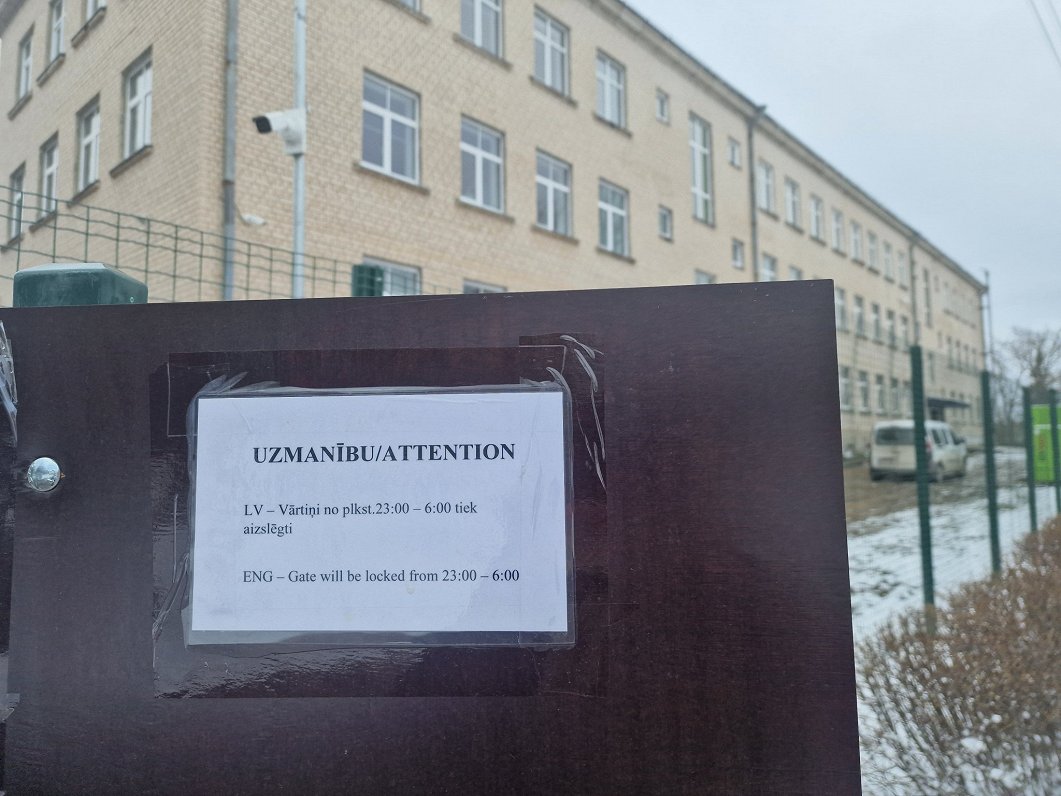
However, there are not many such examples. It is difficult for entrepreneurs to rely on employees who are here today, but tomorrow they may be denied status and have to pack a suitcase to return to their home country. It is generally about six months until refugee status is granted or rejected.
All the asylum seekers Latvian Radio met in Liepna confidently said that they want to live in Latvia. However, PMLP statistics show the opposite – the majority do not stay in Latvia, but quickly go to other countries of the European Union, ssometimes even before a decision on granting or denying refugee status has been made. Germany is most often the ultimate destination, followed by France, Italy, Sweden and Great Britain.
Those who do not receive refugee or alternative status must leave Latvia within 30 days. If they don't do it voluntarily, the border guard gets involved. As soon as the migrants come into the sight of the border guards, they are taken to the accommodation center for detained foreigners, where they stay until they are returned to their home country.
Currently, approximately half of the places in the centers at Mucenieki and Liepna are occupied, so there is still spare capacity. There is no reason to believe that the number of asylum seekers could increase rapidly in the near future. However, if at some point it is necessary to look for premises for another center, it is expected that the municipalities will be more responsive next time around. The example of Liepna has shown that locals and asylum seekers can live together in relative harmony, and moreover, asylum seekers can make a modest economic and cultural contribution in a village with a shrinking population far from the capital.
